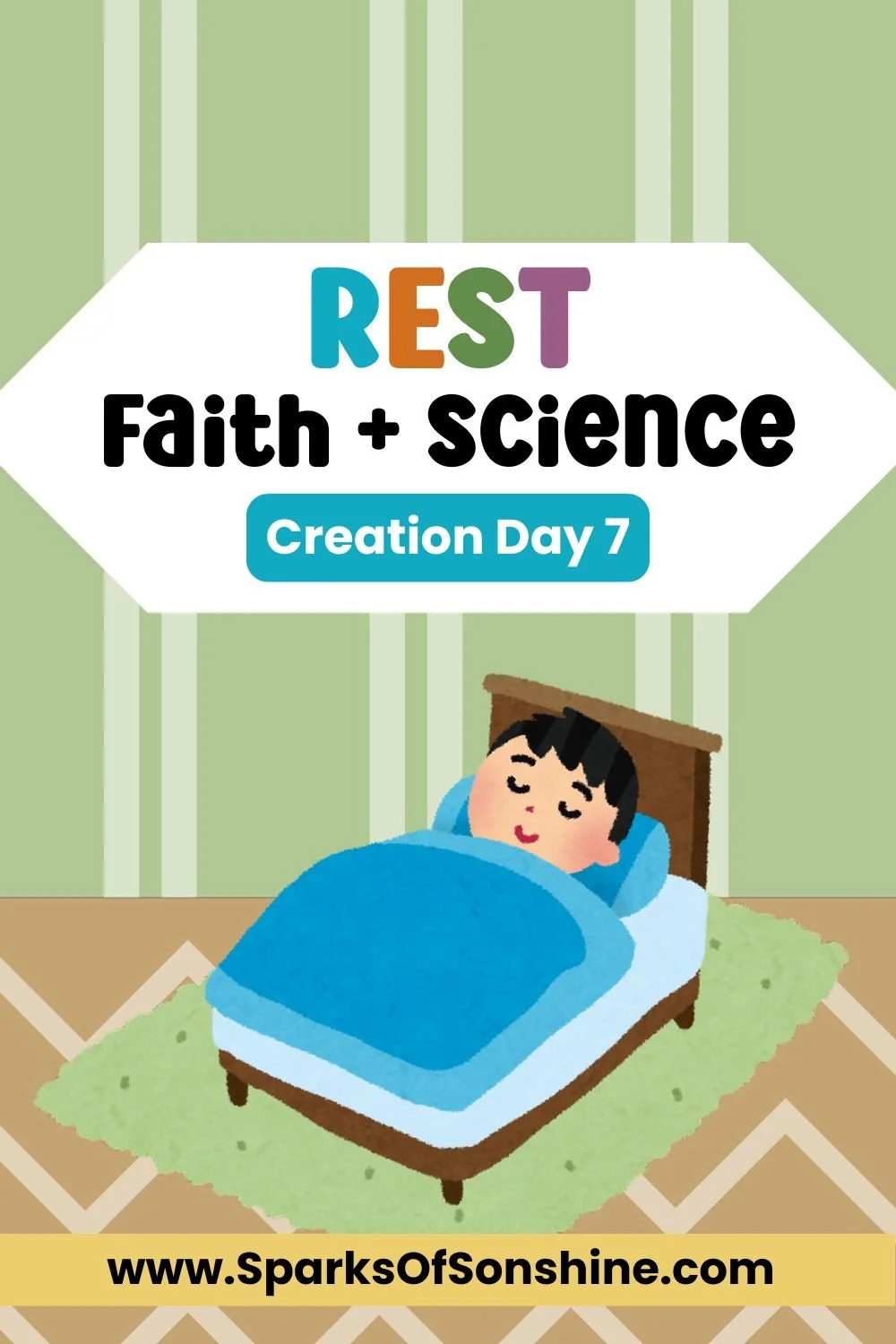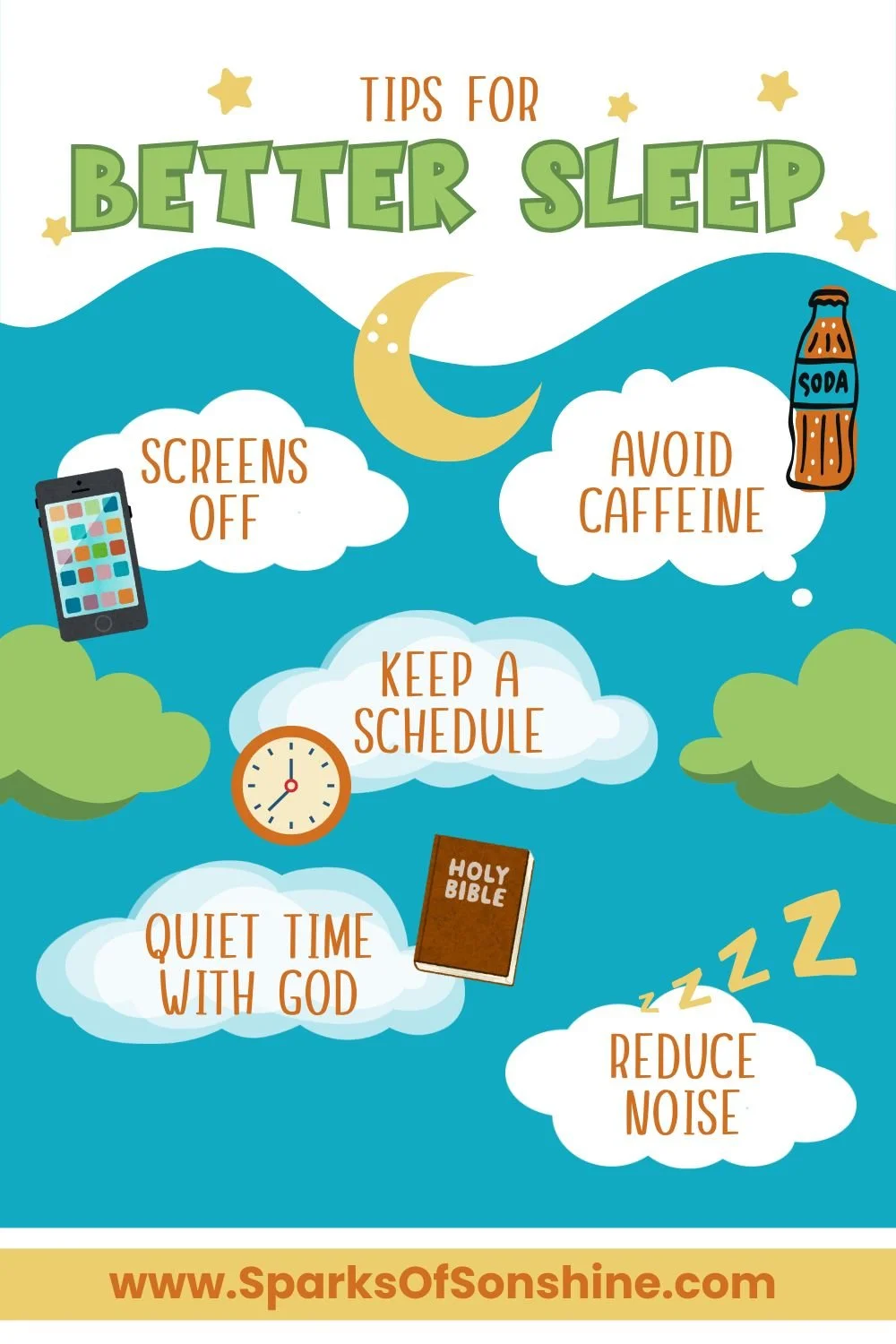Why Rest Isn’t Lazy: God Designed It, and Science Proves We Need It
After six powerful, purposeful days of creating everything from light to land and sea to stars, God rested.
Not because He was tired.
Not because He needed a break.
But because He was establishing a rhythm—a holy pattern for His creation to follow.
And we need that pattern more than ever.
In today’s fast-paced world, kids and adults alike are pulled in every direction. School, sports, activities, work, screens—it can feel like there’s no time to stop. But the truth is, God didn’t just recommend rest—He modeled it.
Bible Says: God Rested
Genesis 2:2–3 —“By the seventh day God had finished the work he had been doing; so on the seventh day he rested from all his work. Then God blessed the seventh day and made it holy…”
God blessed the act of rest.
He made light, sky, land, stars, animals, and people—then He paused. Not because He was out of energy, but because He knew we would need the reminder to slow down. Rest is a reflection of trust. A way to say, “God is in control—even while I pause.”
When we teach kids to value rest, we’re not promoting laziness—we’re giving them a biblical foundation for peace, purpose, and physical renewal.
And when you're teaching the Days of Creation, this becomes a perfect way to wrap up the week. After showing how God formed and filled the world in six days, Day 7 brings it all together. It gives meaning to the pattern. It teaches children that rhythms matter—and that how we rest reflects who we trust.
🔬 Science Insight 🔬
How Sleep Restores the Body
While God designed us for both work and rest, our bodies are literally wired to recharge.
During sleep, your body doesn’t just shut off—it kicks into restoration mode. Here's what happens while we sleep:
The brain processes and stores memories. It clears out waste, rebalances chemicals, and strengthens what we learned that day. That’s why sleep is vital for learning and attention.
Muscles repair and grow. Growth hormones are released, especially in children, to help with physical development.
The immune system resets. Sleep helps your body fight off infections, heal from injury, and reduce inflammation.
Mood and emotions regulate. Lack of sleep often leads to irritability, anxiety, or trouble handling stress.
And the best part? This happens in cycles—not all at once.
Understanding the Sleep Cycle
The sleep cycle includes two major types:
Non-REM sleep (NREM) – This is where your body begins to relax and restore. It has 3 stages, including deep sleep.
REM sleep (Rapid Eye Movement) – This is where dreaming happens. It’s important for brain development, memory, and emotional health.
A full cycle takes about 90 minutes, and we go through multiple cycles each night. That’s why kids need 9–12 hours of sleep—to complete those cycles enough times for their body and brain to fully reset.
When kids don’t get enough sleep:
Focus and memory suffer
Emotions become harder to manage
Physical growth and immunity slow down
Learning and behavior can decline
God didn’t just tell us to rest. He designed our brains and bodies to require it.
Even the animals created on Day 5 follow natural sleep cycles. Birds roost. Fish rest. The sun and moon—placed on Day 4—govern rhythms of light and dark. God built a 24-hour rhythm into creation, and He invites us to align with it.
Rest Is a Gift, Not a Weakness
Our culture often praises busyness and hustle. But in God’s design, rest is sacred. It’s not something we earn after working hard enough—it’s something we need in order to work, think, love, and live well.
When we slow down, we:
Notice God’s presence
Allow our bodies to heal
Teach our children balance and boundaries
And when we teach rest as part of God's creation, we help our children spot weeds of untruth—like the lie that worth is measured by productivity.
How to Talk to Kids About Rest
Here are a few simple ways to connect the Bible and science when teaching kids about the importance of rest:
Ask: "Why do you think God chose to rest?"
Explain: "Even though He didn’t need to, He knew we would. And He made our bodies to need sleep to grow, learn, and stay strong."
Share: "Did you know your brain gets cleaned while you sleep? It’s like God gave you a nighttime refresh button!"
Make rest part of their rhythm—not just physically, but spiritually. Encourage Sabbath-style moments: reading, quiet time, tech breaks, and prayerful stillness.
Let’s Rest Together
Rest reminds us we’re human—and that’s a good thing. It humbles us. Heals us. And brings us closer to the rhythm God placed in creation.
Looking for a simple next step?
Talk with your kids about how your family can practice rest this week. Maybe it’s a tech-free evening, a nature walk, or an earlier bedtime routine. Use this conversation to build rhythms that restore both body and spirit—just like God intended.
Together, we can teach our children to trust God, take breaks, and live with peace on purpose—all while helping them grow confident in their faith through real-world, God-designed rhythms.


